73 posts
Latest Posts by spinatlasagne-blog - Page 2













Feng Zhu
From the artist:
For more than 12 years, Feng Zhu has contributed to some of the highest profiled projects in the entertainment industry. His broad design skills allowed him to reach across into many fields from hit movies, to triple-A games, memorable TV commercials and toy designs. Founding his own design company, Feng Zhu Design (FZD), his client includes Microsoft, Electronic Arts, Sony, Activision, Industrial Light+Magic, NCSoft, Warner Brothers, Lucasfilm, Bay Films, Epic Games, and many other top studios. In Hollywood, he has worked closely with well established directors including George Lucas, Steven Spielberg, James Cameron, Michael Bay and Luc Besson.

In the spring of 2009, Feng founded the FZD School of Design in Singapore. This venture was established to train professionals and students who want to break into the entertainment design industry. This type of specialized education is rarely available in Asia. Today, Feng Zhu Design continues to create original content and provides designs for clients around the world.

Images and text via


Sanguine: DWRS 03 (deep water resupply station) - by Patrik Rosander
“Sanguine station provides oxygen, food and fuel as well as basic medical facilities to deep sea mining, maintenance and freight crews.”










The future is here. The future is Russia.

“Hub” by Amaury Bündgen.








Geoffrey Thoorens









WADIM KASHIN

Z.W. Gu 2D Freelance Artist Contact: gzw1019@gmail.com
– Share via Artstation iOS App, Artstation © 2017
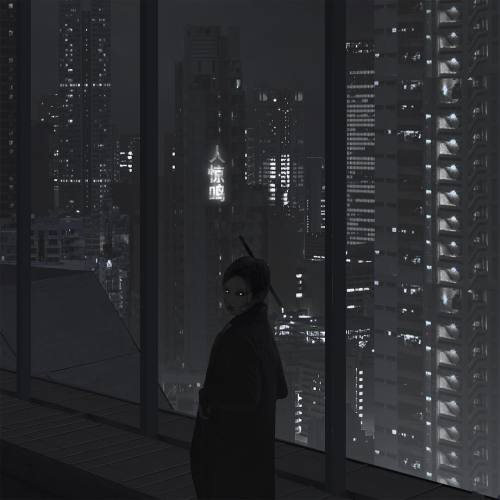
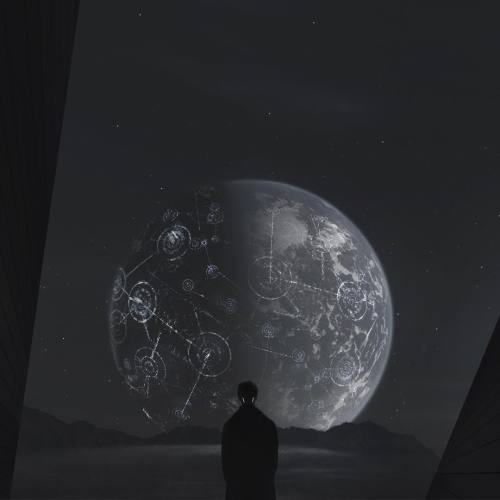
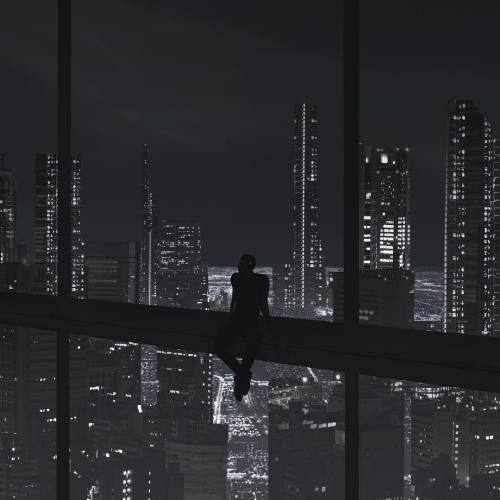
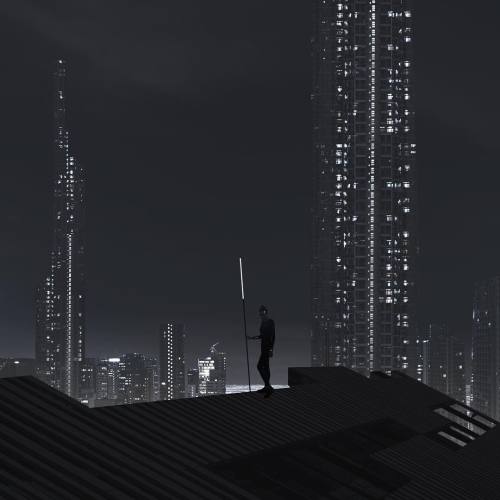


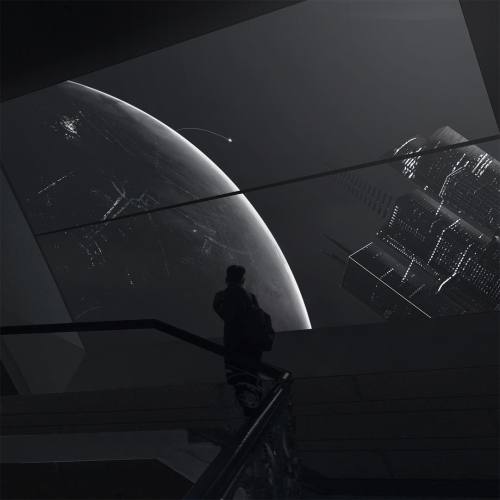
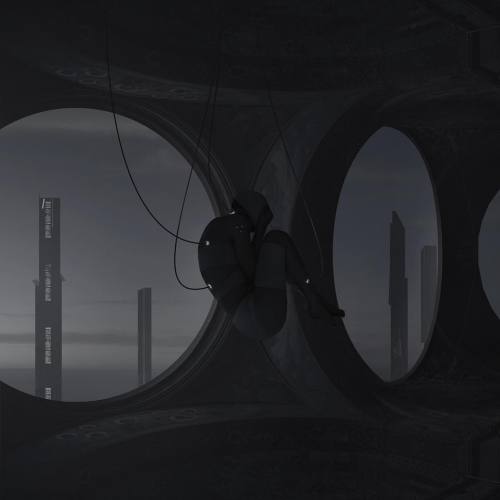
Arthur Sozydai


An Oblique View of the Himalaya from the ISS (Jeff Williams)
(TheAtlantic)

This is not an error…
This is what tumblr feed would look like if each country enacted travel ban!! Break down the walls and let people mingle. That’s the only way we would create a greater understanding between cultures, nations and religions and keep America safe. This is not a political statement. As a person who loves to travel and explore cultures I’m appalled at the travel ban. Remember, hatred begets hatred. Reject hate. Tear down this wall of ignorance

by Yoshito Hasaka / 羽坂譲人 (@_f7) on Instagram







harkonnen ornithopter sketches inspired by artofthera https://www.artstation.com/artwork/QWOJr
Star birth with a chance of Winds?

The lesser-known constellation of Canes Venatici (The Hunting Dogs), is home to a variety of deep-sky objects – including this beautiful galaxy, known as NGC 4861. Astronomers are still debating on how to classify it. While its physical properties – such as mass, size and rotational velocity – indicate it to be a spiral galaxy, its appearance looks more like a comet with its dense, luminous “head” and dimmer “tail” trailing off. Features more fitting with a dwarf irregular galaxy.
Keep reading

ART: “Early Morning” by Jan van de Klooster
It’s pedal to the metal for driverless cars
by William Messner

When a May 2016 crash killed the person operating a Tesla Model S driving in Autopilot mode, advocates of autonomous vehicles feared a slowdown in development of self-driving cars.
Instead the opposite has occurred. In August, Ford publicly committed to field self-driving cars by 2021. In September, Uber began picking up passengers with self-driving cars in Pittsburgh, albeit with safety drivers ready to take over.
October saw Tesla itself undeterred by the fatality. The company began producing cars it said had all the hardware needed for autonomous operation; the software will be written and added later. In December, days after Michigan established regulations for testing autonomous vehicles in December, General Motors started doing just that with self-driving Chevy Bolts. And just one day before the end of his term, U.S. Secretary of Transportation Anthony Foxx designated 10 research centers as official test sites for automated vehicle systems.
Three of the most significant developments in the industry happened earlier this month. The 2017 Consumer Electronics Show (CES) in Las Vegas and the North American International Auto Show in Detroit saw automakers new and old (and their suppliers) show off their plans and innovations in this arena. And the National Transportation Safety Board (NTSB) issued its report on the Tesla fatality. Together, they suggest a future filled with driverless cars that are both safer than today’s vehicles and radically different in appearance and comfort.
Keep reading


Solar System: Things to Know This Week
Celebrate with us as our Opportunity rover turns 13, view art from our fans and more!
1. All Grown Up
After exceeding her 90-day mission and design parameters many times over, our plucky little rover Opportunity turns 13 years old on the Red Planet. She’s officially a teenager!
2. People’s Space

The public contributes so much wonderful art that we decided to make a place to share it. Enjoy!
3. Ready for a Close Up

Our Juno spacecraft recently got a closer look at Jupiter’s Little Red Spot. The craft’s JunoCam imager snapped this shot of Jupiter’s northern latitudes on December 2016, as the spacecraft performed a close flyby of the gas giant. The spacecraft was at an altitude of 10,300 miles above Jupiter’s cloud tops.
4. A New Test for Life on Other Planets

A simple chemistry method could vastly enhance how scientists search for signs of life on other planets. The test uses a liquid-based technique known as capillary electrophoresis to separate a mixture of organic molecules into its components. It was designed specifically to analyze for amino acids, the structural building blocks of all life on Earth.
5. Blurring the Line Between Asteroid and Comet

Our NEOWISE mission recently discovered some celestial objects traveling through our neighborhood, including one on the blurry line between asteroid and comet. An object called 2016 WF9 was detected by the NEOWISE project in November 2016 and it’s in an orbit that takes it on a scenic tour of our solar system. A different object, discovered by NEOWISE a month earlier, is more clearly a comet, releasing dust as it nears the sun.
Discover the full list of 10 things to know about our solar system this week HERE.
Make sure to follow us on Tumblr for your regular dose of space: http://nasa.tumblr.com


ART: “Cargo X3″ by William Nunez
New Gene-Delivery Therapy to Restore Hearing?
Using a novel form of gene therapy, scientists from Harvard Medical School and the Massachusetts General Hospital have managed to restore partial hearing and balance in mice born with a genetic condition that affects both.

The new model overcomes a long-standing barrier to accessing hair cells, the delicate sensors in the inner ear that capture sound and head movement and convert them to neural signals for hearing and balance. These cells have been notoriously difficult to treat with previous gene-delivery techniques.
Keep reading

ART: “Hangar 8″ by Albert Ramon Puig